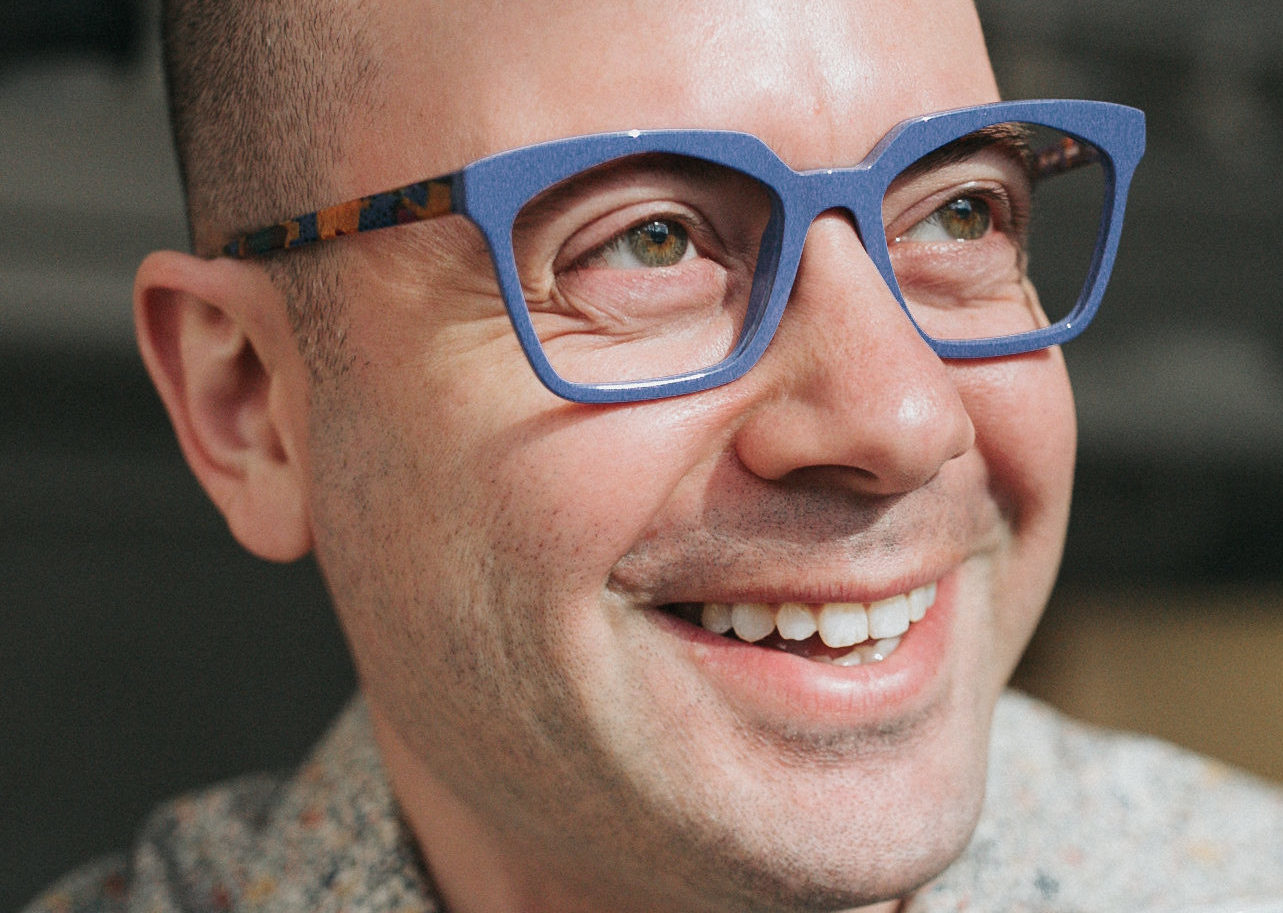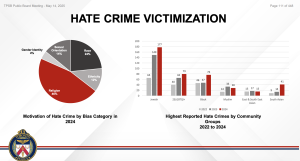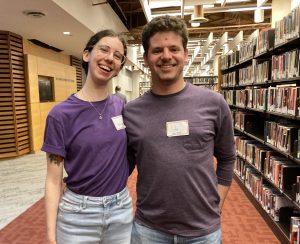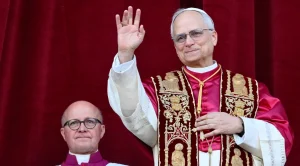This piece originally appeared in the Spring 2024 issue of the quarterly magazine from The CJN.
Trauma myopia. It’s a term I encountered recently in the New York Times, in an article about alliances and tension between Jewish and African-American activists. The journalist, Daniel Bergner, interviewed a young non-Jewish activist named Nicole Carty, who spoke about “a Jewish propensity for ‘trauma myopia’.”
“I’ve been to a lot of Passover celebrations,” she told Bergner, “and it’s so weird that the story is only of Jewish subjugation, even though subjugation is still so present for other people.” She went on: “Black people still haven’t had their histories honored. We are still gaslit about the impact of slavery and the continued impacts of white supremacy.”
This highlighted a tension that has existed in Jewish thought for quite a while: How much of Judaism is rooted in particularism—in the notion that everything we do as Jews is uniquely by us and for us? And how much of it is rooted in a universalist mindset, or the idea that we have a set of values that can be adopted and presented to the world at large? Are we required to remember everything that has happened to every group when we discuss our past? What is the nature of the seder and why do we have one every year? Who is it for?
The majority of Jews and Jewish thought lives in between these two endpoints—the upshot of which is that we need to grapple with this tension, especially at peak moments in Judaism such as the seder.
Years ago, I was invited to give a series of talks entitled “Judaism: On Pleasure.” The first session was about Judaism’s relationship to food. It was before Passover, and we got to talking about the seder and how gathering around food and meals shapes us as a community. One of the things I had mentioned as an aside was that there are rabbinic opinions that hold that one should not have any non-Jews at the seder. This stems from a technical halachic question, but it certainly became part of the rabbinic question of who is the seder for. If we say “let all who are hungry come and eat,” we need to define who all is.
To my surprise, at the beginning of the next session I was told that my presence was a near thing: they had come close to retracting my invitation to finish the series. Just about everyone attending had non-Jewish family members, and they were insulted to learn that those kin might not be wanted at their seders.
One of the formative questions that Judaism wrestles with is the relationship between universalism and particularism. Which of our practices and ideas are meant to be something we share with the world (don’t murder, take time off to rest, the value of learning) and which are specific to us as a people (pray with a quorum, sit in mourning for seven days, don’t eat leavened products on Passover)?
The seder might be the ideal moment to contemplate this tension, precisely because the seder might be the peak moment of particularism in traditional understandings of Judaism. The story we tell at the seder is the story of our nation, our history, our relationship with the Divine.
The story of the exodus is about of how a small family grew and evolved into a nation. And just like an individual who grows up and needs to assert their own identity, one of the central themes in this evolution is differentiating ourselves from our roots in Egypt. When we arrive, we are the Children of Jacob. We leave as B’nai Yisrael, a people that define ourselves, very often, by how we are not like the Egyptians. We were instructed to sacrifice a lamb which was sacred to Egyptians. Our faith is not rooted in the movement of the stars and planets but in the one who placed those spheres in orbit. Most importantly, our ethical responsibilities are directly related to how we were treated in Egypt. We rest weekly because we were forbidden to do so as slaves; we treat others fairly because we were not. The seder by its nature celebrates our particularism, our difference.
This argument for Judaism’s particularism does not mean we are creating a hierarchy of nations. We are not inherently better than anyone else, and if we invite non-Jews to our seders it isn’t so they can hear us talk about how much better we are than them. We have this origin story that gives us our unique character. It is no better or worse than any other nation’s origin story, and by extension the ethics we derived from our origin do not make us better.
It is what we do with those ethics that shapes us. If it is victimhood that was transformed into this sense of responsibility that we celebrate at the seder, then what we do with that responsibility is we should dwell on.
The series of talks I’d given where the question of non-Jews at the seder came up was held at a Reconstructionist congregation. The movement (which now calls itself Reconstructing Judaism) is rooted in the theology of Mordecai Kaplan, an American rabbi born into an Orthodox family with some renegade tendencies. His thought was very much about the tension between nationalism and universalism. Shira Stutman, who was the senior rabbi of the historic Sixth & I synagogue in Washington D.C. (and can be heard weekly on the Chutzpod podcast) told me that for her, particularism is unequivocally important even in a time of universalism. “In our moment in history, it’s about a balance between the two. When do we lift up universalism and when do we lift up particularism?”
Stutman also remembers the moment of disbelief she had when she learned that some Jews don’t have any non-Jews at their seders. She thinks that for many Jews, Passover is the not only the story of our liberation but also a way to support liberation for all. This universalist gloss on a what was once a particularistic holiday is one of the main reasons why many Jews continue to celebrate the seder.
Sid Schwarz, a rabbi who grew up Orthodox, was ordained in the Reconstructionist movement, and now works extensively in trans-denominational settings, put it this way: “Most lessons about chesed and the responsibility towards the other are best learned in a particularistic setting.” He continued by stressing that if someone remains in a particularist setting, however then you haven’t actually learned the lessons you’re meant to. At Passover, the story of going from slavery to freedom is certainly a particular one. But it is the start of an emotional and intellectual journey, not an end in and of itself. The lesson in the story is to help others, whoever they might be, in their journey from slavery and oppression to freedom and autonomy.
This is what Nicole Carty seems to be missing when she talks about trauma myopia at the seder. There are many Jews who have taken these lessons to heart—many who feel the pain of others and do the work needed to make meaningful changes. But that work often needs to be rooted in something else, in our own story. I don’t expect others to centre my story in their lives, and I want to be able to celebrate my story alone at certain points in my Jewish life.
This year, in the wake of Oct. 7 and the ongoing war, Passover will inevitably have a different feel to it. Many people will, naturally, want to discuss those events at their seders—and this is not, I don’t think, a collapse into universalism. The very nature of what we discuss in the Haggadah is at the core what is currently happening with this war. Many of our values as Jews stem from this origin story, and there is so much to draw from when we discuss this conflict that is rooted in these very nation-forming values. Ignoring them would be foolish and pretending that this story is just ancient history or myth is just plain wrong.
It would also be wrong to assume to know what lessons the Hagaddah holds about the war.
In the seder, we are reminded that in every generation there are those who rise up to annihilate us, and we are saved from them, and we ask God to pour wrath upon the nations that do not know God. So maybe let’s hear out what cousin Shmuli from Sderot has to say about how this is manifesting today, and accept that we are dealing with a fear that runs deep and is part of our collective unconscious.
But this is not the end point. The fact that we were once slaves in Egypt is exactly why the rabbis remind us to care for those that are less fortunate than us and are in need of care and comfort. We are required to imagine ourselves as if we are leaving Egypt. If that doesn’t make you feel compassion for a Palestinian who is starving and under constant bombardment, then you might be doing it wrong.
The seder is the perfect moment to celebrate our particularism as a nation, and also to remember that it was shortly after our own liberation that we were given a set of rules about how to govern ourselves, not just internally, but with relation to the rest of the world as well.
Avi Finegold is the co-host of Bonjour Chai.







